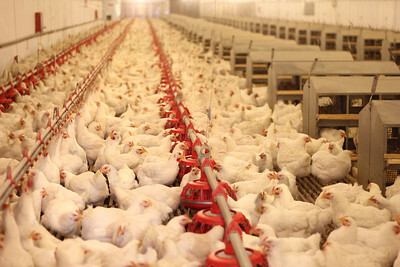



Raising slower-growing broilers could improve welfare
A University of Guelph study yields promising results
University of Guelph researchers studied more than 7,500 chickens raised at U of G’s Arkell Research Station. The Canadian researchers looked at 16 genetic strains bred for four growth rates as well as other traits.
Outfitting the birds with wearable devices like Fitbits, they compared mobility and activity. An obstacle test allowed the team to compare leg strength among different poultry strains. They monitored birds’ use of enrichment items and examined birds for foot lesions, and also looked at meat quality.
The researchers found that faster-growing chickens were less active and mobile, had poorer foot health and breast muscle damage.
“It was the combination of high breast yield and fast rate of growth that led to poorer welfare outcomes,” said Stephanie Torrey, an adjunct faculty member with the Department of Animal Biosciences.
The researchers said they were encouraged to find that some major health and welfare issues – including skeletal leg muscle problems and heart failure – that were common about 20 years ago no longer prevail.
“That means breeder selection to resolve those problems has worked, and we hope that results of our study will set the direction for the next phase of genetic changes leading to welfare improvements,” said Tina Widowski, who holds the Egg Farmers of Canada Chair in Poultry Welfare.
The team said the study may eventually help poultry breeders and producers to select traits associated with better welfare.
The researchers are now preparing a series of peer-reviewed articles for publication.









